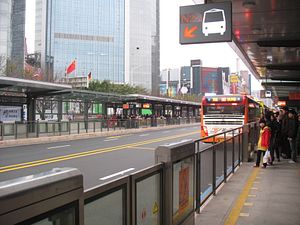On Wednesday, China’s government announced that it would reform its controversial hukou system of household registration that has traditionally inhibited large-scale migration from the country’s rural areas into its urban centers. The reform has long been expected, but was not announced to the degree that many hoped at last year’s Third Plenum. Currently, the CCP has set a goal of urbanizing 100 million rural Chinese. Doing so without reforming the cumbersome hukou system would have proven impossible. Additionally, hukou reform plays a part in the CCP’s bid to shift China’s economic growth model into a more consumption-focused, demand-driven one. Urban Chinese play an important role in increasing the country’s aggregate demand.
Wednesday’s statement built on last November’s announcement that the government would relax residency restrictions under the hukou permit system for China’s smaller cities. The statement, posted online by the State Council, does not immediately expand the reform to China’s larger cities but adds additional details about the impending liberalization of the hukou system. Liberalizing the urbanization permit system to China’s smaller cities first makes sense insofar as it promotes more even rural-to-urban migration. If the reform had allowed urbanization to all of China’s cities, it is likelier that most rural migrants would have preferred larger, more established metropolises.
According to Xinhua, “the government will remove the limits on hukou registration in townships and small cities, relax restrictions in medium-sized cities, and set qualifications for registration in big cities.” Additionally, the State Council document notes that “the rights and benefits of residents who do not have urban ID records in the city where they live should be safeguarded.” Significantly, there will be no limits for settlers moving to small cities. Medium cities, defined as cities with populations between one and three million, will have a low barrier to entry. Large megacities, defined as cities with over 5 million residents, will still have a fair amount of restrictions and aspiring residents will have to qualify under a “points system” that takes into consideration a variety of individual factors including “seniority in employment, their accommodation and social security.”
China remains extremely cautious about any sudden reforms to its hukou system. As Reuters notes, much of the focus today is on ensuring “orderly” rural-to-urban migration. Hukou reform has also encountered significant resistance from local government leaders who are mostly unwilling to take on the additional public services burdens that increased urbanization is sure to bring to China’s smaller cities. The new regulations do a little to placate local governments. Cities that clearly have the ability to accept more residents will be allowed to do away with all regulations, but should local governments feel that regulating incoming migrants will be useful, they will be allowed to do so (with some constraints).

































